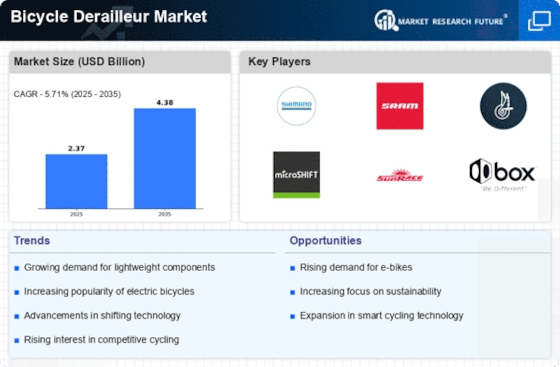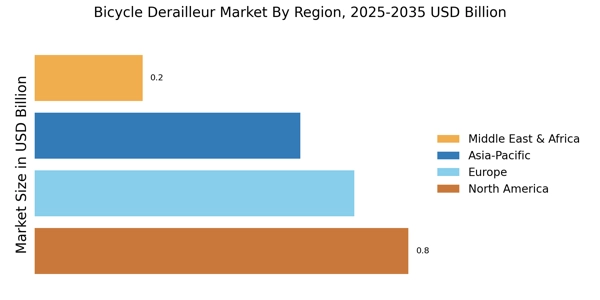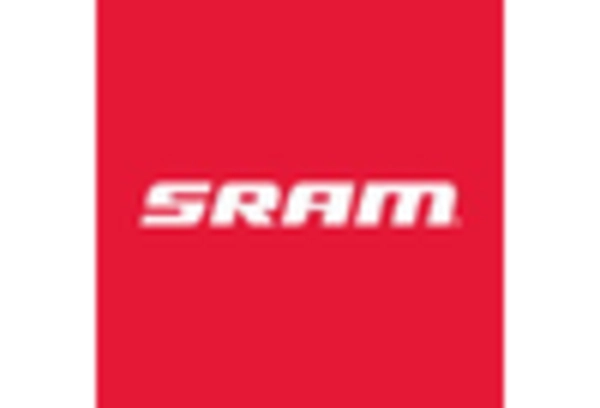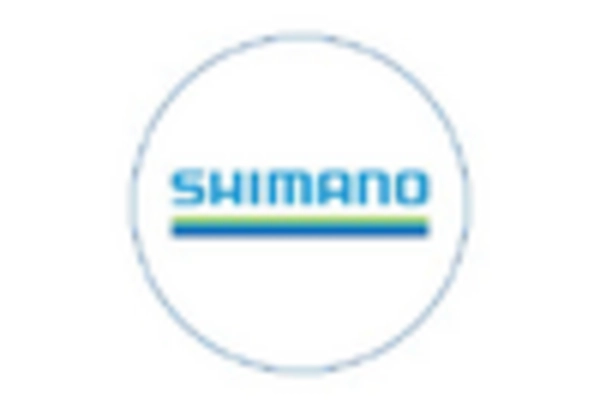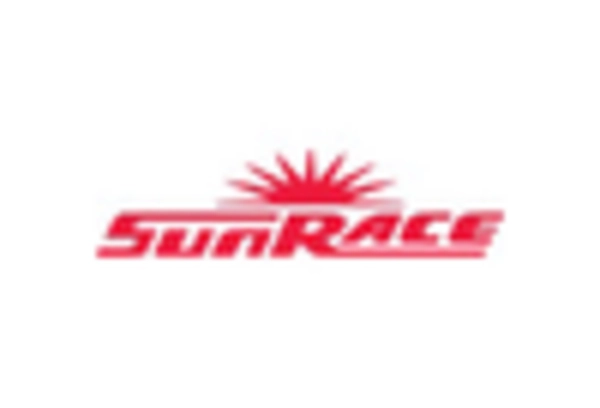Rising Demand for E-Bikes
The increasing popularity of e-bikes is a notable driver in the Bicycle Derailleur Market. E-bikes, which combine traditional cycling with electric assistance, require advanced derailleur systems to ensure smooth gear transitions. As of 2025, the e-bike segment is projected to account for a substantial share of the overall bicycle market, with estimates suggesting that e-bike sales could reach 40 million units annually. This surge in e-bike adoption necessitates high-quality derailleur systems, thereby propelling growth in the Bicycle Derailleur Market. Manufacturers are likely to focus on developing lightweight and efficient derailleur systems tailored for e-bikes, which may further enhance performance and user experience.
Focus on Health and Fitness
The growing emphasis on health and fitness is a significant driver in the Bicycle Derailleur Market. As more individuals recognize the health benefits of cycling, there is an increasing inclination towards purchasing bicycles equipped with advanced derailleur systems. The market for fitness-oriented bicycles is anticipated to expand, with projections suggesting a growth rate of around 7% through 2025. This trend indicates that consumers are likely to seek bicycles that offer superior performance and reliability, prompting manufacturers to innovate and enhance their derailleur offerings. Consequently, the Bicycle Derailleur Market is expected to benefit from this heightened focus on health and fitness.
Growing Interest in Cycling as a Sport
The rising interest in cycling as a competitive sport is significantly influencing the Bicycle Derailleur Market. With more individuals participating in cycling events and competitions, there is an increasing demand for high-performance bicycle components, including derailleurs. Market data indicates that the sports cycling segment is expected to grow at a compound annual growth rate of approximately 6% through 2025. This trend is likely to drive manufacturers to innovate and produce advanced derailleur systems that cater to the needs of competitive cyclists, thereby enhancing the overall performance and efficiency of bicycles in the market.
Urbanization and Infrastructure Development
Urbanization and the development of cycling infrastructure are pivotal factors driving the Bicycle Derailleur Market. As cities increasingly promote cycling as a sustainable mode of transportation, the demand for bicycles, including those equipped with advanced derailleur systems, is likely to rise. Government initiatives aimed at enhancing cycling infrastructure, such as dedicated bike lanes and parking facilities, are expected to encourage more individuals to adopt cycling. Market analysis indicates that urban cycling is projected to grow by approximately 5% annually, which may lead to a corresponding increase in the demand for high-quality bicycle components, including derailleurs.
Technological Innovations in Bicycle Components
Technological advancements in bicycle components are a critical driver for the Bicycle Derailleur Market. Innovations such as electronic shifting systems and improved materials are transforming the way derailleurs function. For instance, the introduction of wireless electronic derailleurs has gained traction among cycling enthusiasts, offering precise and effortless gear changes. As of 2025, the market for electronic derailleurs is expected to witness a significant increase, with projections indicating a growth rate of around 8% annually. This trend suggests that manufacturers will continue to invest in research and development to create cutting-edge derailleur systems that enhance the cycling experience.


